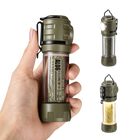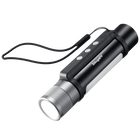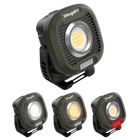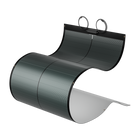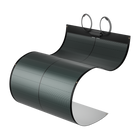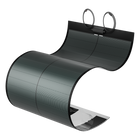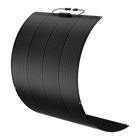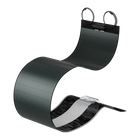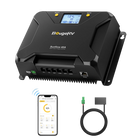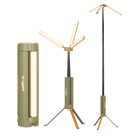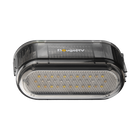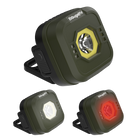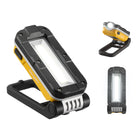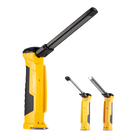MPPT Solar Charge Controllers: Everyting You Need to Know

If you plan on running a solar panel system with a battery connected to it, then choosing the right solar controller will help to ensure that it’s successful.
But solar controllers can be a difficult subject. They aren’t as intuitive as other parts of a solar panel system, and there are several kinds to choose from. If you’re not sure which is right for your needs, this article should help.
In the following sections, we’ll cover everything you need to know about MPPT solar charge controllers – one of the most popular controller options on the market today.
Keep reading to get the information you need to make a decision about whether this option is right for you or not.
- What is a solar charge controller?
- Why do you need a solar charge controller?
- What is an MPPT or Maximum Power Point Tracker?
- How Maximum Power Point Tracking Workers
- Benefits of an MPPT Charge Controller
- Are MPPT solar charge controllers worth it?
- The Best MPPT Solar Charge Controller of 2023
What is a solar charge controller?
Generally speaking, a solar charge controller is what regulates the flow of current or voltage that goes into your solar battery. Its job is to ensure that the battery doesn’t overcharge and discharge when not in use.

Why do you need a solar charge controller?
You need a solar charge controller if you have a battery attached to your solar panel system. But you don’t need one if you’re just using a set of portable solar panels while on the go.
The reason for this is that solar charge controllers help to preserve the energy that you store in your solar battery. So if you don’t have a solar battery, they won’t serve any purpose.
Solar charge controllers will also protect your battery from the damage that can sometimes result from overcharging, so it’s really important not to ignore this critical component of your system.
What is an MPPT or Maximum Power Point Tracker?
Maximum Power Point Tracker, or MPPT, is a specific type of solar charge controller. They’re extremely efficient but also cost a bit more than the major alternative, which is the PWM charge controller.
Both options can be good fits for different types of consumers. It really just depends on whether you place a higher value on efficiency or price.
How Maximum Power Point Tracking Workers

An MPPT charge controller uses a “smart system” to monitor the maximum power point of the panel, which can vary throughout the day. This varies based on factors like sun strength and angle, as well as shading and temperature changes.
The smart element will adjust the input voltage of the DC-DC converter so that you end up with a load that matches the panel.
That’s why some people call these smart DC-DC converters. They allow you to drop the panel voltage down to the voltage required to charge your battery to give greater efficiency and effectiveness to your entire solar energy generation system.
Benefits of an MPPT Charge Controller
Now that we know what solar charge controllers are and what MPPT charge controllers are specifically, let’s take a look at some benefits.
Here are four benefits to be aware of as you go shopping to decide whether an MPPT charge controller is the right fit for your system.
Allows you to set your panel array to a higher voltage than the battery bank
A huge benefit of the MPPT charge controller is that you can set your panels to a higher voltage than the battery bank.
This essentially allows you to generate more usable energy during times like the winter months when there’s less sun. It’s also a very helpful feature for areas that receive less irradiation than average.
Increases your charging efficiency by up to 30%
MPPT controllers also give you much better charging efficiency thanks to their superior technology. The net result is that you get more power out of your solar energy system throughout the entire year.
Gives you more flexibility
If you’re thinking about making future changes to your solar energy system, such as adding new panels, then purchasing an MPPT charge controller could be the right move. These offer greater flexibility for upgrades to ensure you can always make the changes you want to your system.
Typically offers a better warranty
Finally, many companies will give you a better warranty with an MPPT solar charge controller. If that’s a main factor that you’re thinking about during the shopping process, then an MPPT charge controller will likely be your best option.
Are MPPT solar charge controllers worth it?
The answer to this question really depends on your personal situation and goals.
MPPT charge controllers cost more than PWM models, but they give you all of the benefits covered in the previous section in exchange for that higher price tag.
It’s also worth noting here that MPPT controllers provide more value the colder it gets. That means if you live in an area that is constantly around the same temperature, you may not get as much value out of this kind of controller.
On the other hand, if you live in a region with typical seasonal weather, then an MPPT controller could be a great investment. They help you get more energy out of your solar panels at a fraction of the price of a solar battery.
The Best MPPT Solar Charge Controller of 2023

If you’re interested in purchasing an MPPT solar charge controller in 2023, then we really think you should take a look at the BougeRV 40 Amp model. It stands out with a few excellent features that we think you’ll love.
First, it features Active Shield technology, which offers self-recovery, short-circuit protection, high-temperature protection, and even over-circuit protection. That means you get a charge controller that’s highly resistant to all of the different kinds of potential issues that these products face.

Additionally, the BougeRV MPPT solar charge controller can be managed entirely from the palm of your hand, thanks to our ChargePro app, which is available on both the iOS and Google Play stores.
With highly durable construction and an affordable price tag to boot, BougeRV’s solar controller is one of the very best on the market today. It’s definitely worth taking a look at before you make a purchasing decision.
FAQ
MPPT vs. PWM: which solar charge controllers are better?
MPPT controllers are more efficient than PWM controllers but also more expensive. It comes down to your own personal preferences regarding price and performance.
Should I wire panels in series or parallel when using an MPPT charge controller?
There are no wiring requirements for MPPT charge controllers. You can use a series, parallel, or hybrid model.
Can I place the charge controller in a covered box?
You should place the charge controller in an area with good ventilation, so a covered box is typically not a good idea. This is because it will convert excess power into heat and dissipate that heat into the air.
BougeRV Has the Perfect Solar Charge Controller for Your Needs

No matter what your goals are while selecting a solar charge controller, BougeRV has a product that can help you meet them.
We offer a wide variety of solar controller options to choose from, including both MPPT and PWM models at every different amperage you may need.
Take a look at our website to learn more about these products and to find other affordable solar products that can help you get as much value out of this technology as possible.







